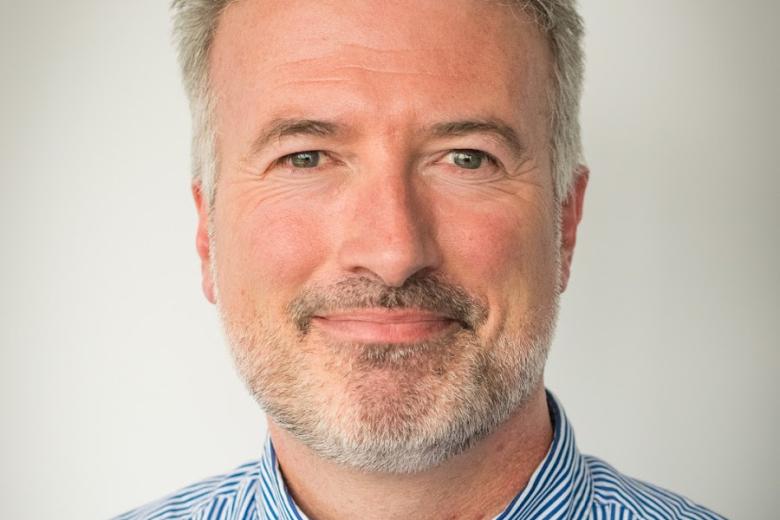Mindfulness: can we have your full attention?
A large part of Wellbeing Week is dedicated to mindfulness, so it's a perfect time to dive deeper into the subject. Based on five frequently asked questions, Martin van Boxtel, associate professor at the School for Mental Health and Neuroscience and mindfulness trainer, explains what mindfulness is, how it can contribute to your wellbeing and how you become mindful.
1. Is mindfulness spiritual?
‘There is no single global definition’, says Martin van Boxtel. ‘Here in the West, we often follow the vision of Jon Kabat-Zinn, the founder of mindfulness training as we know it here. According to him, it's about being present in the moment, without judgement, without wanting things to be different than they are. In other words, you focus your attention entirely on your present experience and being aware of environmental noise and thoughts that distract you. Contrary to what many people think, it's actually a very practical skill.’ So, there doesn't have to be anything spiritual about it.
2. Do you need to be flexible to be mindful?
Like your muscles, you can train your mindfulness. Such training can be done in various ways: from a body scan to various types of yoga and meditation. Van Boxtel prefers to call the latter attention exercises, as this usually conjures up less strong associations. There is always a type of mindfulness that suits you, even if you are not flexible. ‘To start with, you don't necessarily have to have the feeling that you need it in your life’, says Van Boxtel. ‘Just be open to it and explore what it brings you.’
(text continues below picture)
Van Boxtel himself practises meditation, sometimes in the form of longer retreats. For him, it all started years ago when he wanted to know more about mindfulness and its effects on health. ‘I studied medicine because I've always been interested in why people get ill, what makes them better and what they themselves can do to prevent illness. That made me curious about mindfulness as a possible complement to traditional healthcare.’
4. Does mindfulness make you zen?
According to Van Boxtel, mindfulness can help you to become more balanced and to reap the benefits of being more balanced in your daily life and personal development. ‘By consciously focusing your attention on what you are experiencing, you learn to recognise when you are acting on autopilot and to identify what you need instead.’ It can give you valuable insights, although you won't get them overnight; practising mindfulness can sometimes seem like hard work.
‘Sometimes it's relaxing, sometimes it's hard to keep your attention. The trick is to keep going; you only start to experience the effect when you do it regularly. It certainly takes some time, effort and discipline, but the insights you get in return will stimulate you to continue. Eventually you will notice that you also experience benefits during your work or study. Research has shown that medical residents who practise mindfulness experience less stress at work.’

5. Does mindfulness focus only on positive experiences?
More and and more employers and educational institutions are offering mindfulness training. Ideally in the future, Maastricht UMC+ will have a complete Centre for Mindfulness, so that it can be applied even more in research and education, but also in healthcare. For example, people with physical or mental pain can benefit from it. Van Boxtel: ‘During the practice of mindfulness, you also encounter negative experiences. That can sometimes be confrontational and unpleasant. But by not putting them away and opening yourself up to what is there, you lift the proverbial weight off your shoulders. In this way, the pain disappears into the background and you discover how you can deal with the situation in a different way.’
Remarkably, research shows that you do not necessarily have to believe in mindfulness to experience its effects. Van Boxtel: ‘It helps you to be autonomous and full of life. To just experience everything as it presents itself and to learn and act on that basis. Or as the inspiring Buddhist nun Pema Chödrön says, ‘Nothing ever goes away until it teaches us what we need to know.’
Want to know more about mindfulness?
Look at the options during Wellbeing Week, register for a multi-week training, or start working with apps like Headspace or Calm.
Also read
-
SBE researchers involved in NWO research on the role of the pension sector in the sustainability transition
SBE professors Lisa Brüggen and Rob Bauer are part of a national, NWO-funded initiative exploring how Dutch pension funds can accelerate the transition to a sustainable society. The €750,000 project aims to align pension investments with participants’ sustainability preferences and practical legal...

-
Empowering Smallholder Farmers in the Data Economy: Unlocking Opportunities and Overcoming Obstacles
Frederik Claasen, the head of policy at our partner organisation Solidaridad Network on the opportunities and obstacles facing smallholder farmers in their data ecosystems.

-
How do involuntarily returned migrants fare in Senegal?
The PhD research of Karlien Strijbosch focuses on Senegalese migrants who were forced to return home after a stay in Europe. Doing justice to such stories is no easy feat, especially when you come up against walls of silence, distrust and shame. Strijbosch and her supervisor Valentina Mazzucato...

